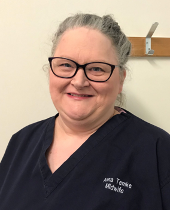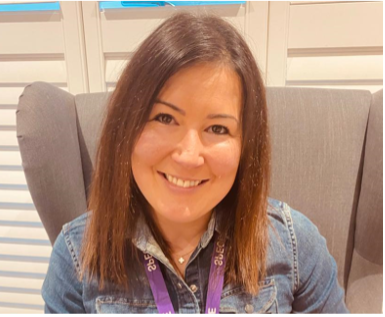Maternity and neonatal services are currently facing unprecedented challenges – many of which have received considerable media and political attention over recent months. The current climate means that the wellbeing of our dedicated teams is at risk, due to the escalating workforce crisis where we are witnessing increasing levels of burnout, with fears of a midwife exodus looming large. There are concerns over unacceptable variations in outcomes between socio-economic and ethnicity groups, with black women 4 times more likely to die in childbirth – an alarming statistic that should worry us all. (1) Furthermore, the challenges to improve the safety culture and mend the public’s trust in maternity services, after the publication of the Ockenden report made headlines across the country earlier this year, cannot be ignored. (2)
The Ockendon report was not the first to identify the absence of leadership as instrumental to the delivery of poor care within NHS services. (3,4) However, the fact it echoed lessons that should have already been learnt from previous incidents, highlights that there is still much work to do in the leadership arena.
There is no doubt that a positive and courageous leadership culture is required to drive change and lead improvement in maternity and neonatal services, with clinical leadership forming a crucial aspect of that. Clinicians are best placed to tackle these challenges, but this can only be achieved if they are enabled and provided with the space to learn how to create and sustain safe and inclusive cultures in the workplace. This also includes developing the confidence to challenge where our services fall short of what the public rightly expect. Opportunities to develop our understanding of how health services work, beyond the scope of our own Trusts and departments is often underappreciated, as is the importance of understanding the ‘bigger picture’ in terms of the broader priorities of the NHS, as well as the true needs of our local communities.
In the past, midwives have worked our way up to leadership roles by stepping from band to band, without necessarily having formal leadership training or experiencing ‘life’ outside of our own departments. Clinical Leadership programmes, such as the NHS Regional Clinical Leadership Fellow Scheme, offer a different and very practical way to develop as leaders and to gain meaningful exposure to navigating complex and challenging situations. This scheme enabled us to develop a conscious awareness of what good leadership looks like, which we can build on throughout the remainder of our careers.
There is no shortage of ambition and talent within our maternity workforce, which is evident by the inspirational midwifery role models we are fortunate to have within our regional and national teams. We had the pleasure of working closely with and being mentored by some of them this year, as they each demonstrated compassionate, collaborative and transformational leadership skills in spades. The interest that the National Chief Midwifery Office has shown in our outputs as midwifery leadership fellows highlights the influence, networking opportunity and valuable contribution to the maternity leadership landscape that this scheme has offered us.
The multi-professional nature of the scheme, with the opportunity to connect with colleagues from 7 different professional backgrounds, has also been incredibly powerful as we have been able to work together, learn together and understand each other: all of which makes for a stronger, safer and more unified NHS. As Donna Ockendon encouraged senior service leaders across multiple organisations and specialities to consider in her report briefing earlier this year – “This is not just about maternity. Ask yourself – could these failings happen in my department? Could they happen in my organisation? Could they happen in my team?” These questions are important to consider as the implications of the Ockenden report offer reflections on governance, learning from incidents, culture, complaints, listening to patients and families and on the importance of Freedom to Speak Up; issues which affect us all. Developing as leaders in multi-disciplinary spaces helps ensure that we are all widening our perspectives, learning from one another’s challenges and finding ways to support each other more effectively in order to improve patient outcomes.
We were proud to have been the first three midwives on the NHS Regional Clinical Leadership Fellow scheme, which began in September 2021. Each of us have been on individual journeys and the workstreams we have engaged with across the different regions have been mixed and broad:
For Anna in the North East and Yorkshire, this included a key focus on tackling health inequalities within maternity services and leading a review on the experiences of members of the perinatal team in relation to career progression and equal opportunities. The publication of the Ockenden Report also created opportunities around exploring the training needs of Labour Ward Coordinators which has been presented to a wide audience.
For Sarah in the London region, opportunities to think beyond the maternity landscape was eye-opening, including working on a large-scale project on Covid-19 testing for asymptomatic staff, as well as experience working with the Complaints Team to explore common themes from patient feedback. This led to finding ways to constructively share these findings with clinical teams in order to improve the services offered.
For Sascha in the East of England, key workstreams included strategic delivery and implementation of an evidenced based maternity urgent care service in the region, along with recruiting, retaining and upskilling maternity support workers. Achieving regional complex large-scale change has been incredibly rewarding and has confirmed ambitions to lead transformation across maternity services.
The scheme has been a pivotal moment for all three of us. As we return to our substantive roles as almost unrecognisable versions of our former selves, or explore new leadership avenues, we feel renewed, regenerated and fully aware of the powerful contribution that midwives can offer in the leadership space. We were delighted to see an influx in midwifery applicants for the 2022/2023 cohort of the scheme and will watch with interest as their own meaningful moments in midwifery leadership unfold.
References
- MBRRACE-UK Saving Lives, Improving Mothers’ Care, 2021
- Independent Maternity Review. Ockenden report – Final:Findings, conclusions, and essential actions from the independent review of maternity services at the Shrewsbury and Telford Hospital NHS Trust (HC 1219). Crown 2022
- Francis R. Report of the Mid Staffordshire NHS Foundation Trust Public Enquiry. London: The Stationery Office; 2013.
- Kirkup B. The Report of the Morecambe Bay Investigation London: The Stationery Office; 2015

Sarah Paxman
Sarah has been a midwife for 20 years now, and a Clinical Risk Midwife for the last six years. She has a passion for incident investigation and quality improvement. She enjoyed the challenge of working as a Clinical Fellow with NHSE in London for the last year. Sharing the findings and recommendations from her projects has given her the opportunity to meet and work with many national and regional healthcare leaders and their teams. The scheme enabled her to form ambition to work at a regional level and her next position is as a Regional Neonatal Quality Improvement Lead. Twitter: @SarahPaxmanMW

Anna Temke
Anna is Senior Midwife and Labour Ward Coordinator at South Tees Hospitals NHS Foundation Trust. She has a special interest in patient experience and sits on the Trust Sub-Group for patient experience and is the lead professional for the Maternity Voices Partnership. To assist with her management role, Anna completed an MSc in Transformational Leadership in Health and Social Care and has also completed a PRINCE2 project management program. She has worked as a Clinical Leadership Fellow in the North East and Yorkshire for the last 12 months and returns to her substantive post with a new level of experience and insight. Twitter: @AnnaT41119086

Sascha Koutrouza
Sascha has been a midwife since 2002, with broad midwifery experience having worked in all clinical areas across maternity. In 2018, Sascha became a Diabetes Specialist Midwife, quickly noting the need to shift the way diabetic services were delivered in pregnancy and began exploring digital solutions. This work saw her being approached to sit on the Chief Nursing Officers’s Shared Professional Decision Making Council for NHSX. She was recognised nationally for her achievements and in 2020 was awarded a Chief Midwifery Officers Silver award. She commenced the Regional Clinical Leadership Fellow Scheme in 2021 and, within months of starting, was able to apply new skills gained to her substantive role and was promoted into a new post as a Quality and Safety Improvement Midwife. As a result of the scheme, she now has the confidence and skills required to take her leadership journey in maternity transformation forwards.